Raise your hand if you’ve ever been so sleep deprived you felt like you’d been hit by a mack truck in the morning. (Don’t worry, my hand’s up too!)
Our sleep problems in the U.S. are so bad that the CDC refers to them as “a public health epidemic,” and that was pre-pandemic! In its most recent study, about 40% of the population between the ages of 25 to 55 get less than the recommended 7 hours of rest each night to maintain a healthy body and mind.
A lack of sleep can affect your immune function, energy, mood, memory, concentration, focus, metabolism, weight, and even your sex life—yep, not getting enough sleep lowers your libido and can make people more likely to have sexual problems.
If you’re looking for ways to improve your health, boost your creativity and mood and feel better in your bod, do not overlook the miracle drug that is getting better sleep. AND, along with exercise and real food, quality rest is the best makeup anyone can ask for. And it’s free!
Now, I know in this world of constant notifications, beeps and blue light screens, it can be a real trial to just get to bed at a decent hour, let alone enjoy blissful slumber for a full 7+ hours. But there are ways you can help prepare your body and mind to take a much-needed break.
Alright, Goldilocks, here are 8 ways to get better sleep that’s juuuuuust right.
Your brain is a busy bee, so it’s important to implement a gentle nighttime routine to signal your body that it’s time to wind down.
1) Maintain a consistent sleep schedule.
I know it’s tough but aim to go to bed close to the same time every night and wake up at the same time each morning. Even weekends, social butterflies!
Consistency will reinforce your body’s sleep-wake cycle, and it will become easier over time to fall asleep. To help you determine your ideal time, the Mayo Clinic recommends that you don’t allot more than 8 hours for sleep, so use that as a guide.
2) Dim the lights in advance.
It’s super important to turn down the lights before your head hits the pillow. Start dimming the lighting at least 2 hours before bedtime. The brightness emitted from your TV, computer or smartphone will trick your brain into thinking it’s still daytime—releasing more of the stress hormone cortisol into your bloodstream. This is a big no no, as it interrupts your body’s natural impulse to release the sleep hormone melatonin at night.
Quick Tip: Keep a nightlight in the bathroom to minimize bright light if you need to use the toilet.
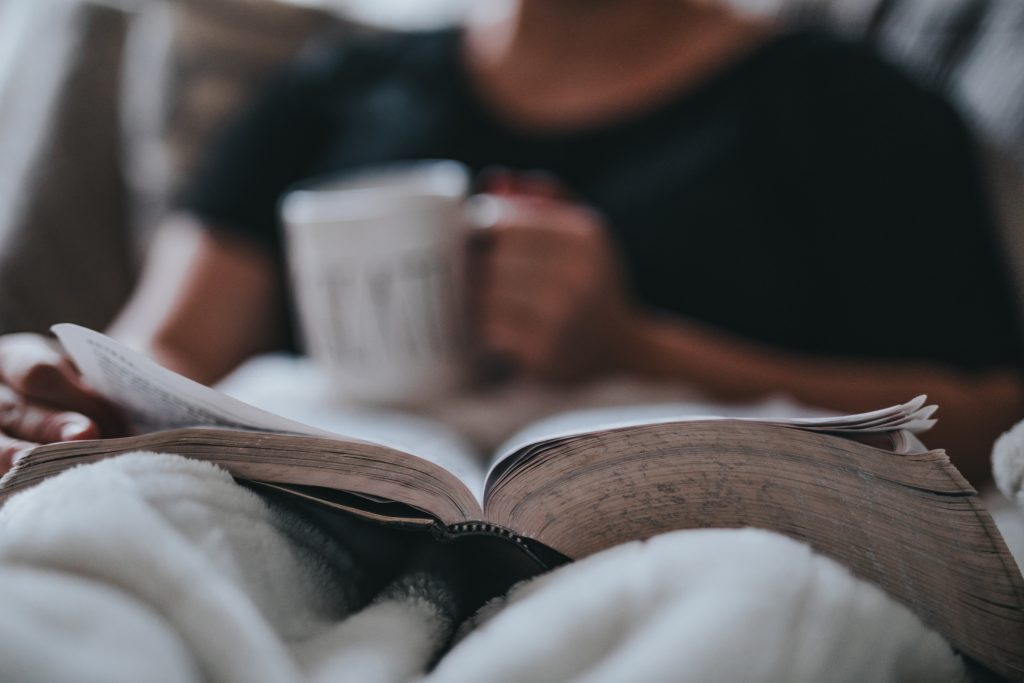
3) Relax your body.
If your thoughts race at night, try to calm them down by taking a warm bath or shower. This will help reduce any muscle tension that could be preventing you from getting better sleep. If you’re into something more active, try some gentle yoga or stretching.
Maybe read a good book, light some candles, or listen to soothing music and meditate. Enjoying these relaxing routines will promote better sleep by allowing you to ease away from wakefulness into drowsy dreamland.
4) No late-night snacking.
Getting a better night’s sleep is all about feeling comfortable and relaxed, and that won’t be possible if your tummy is either grumbling or stuffed to the gills. So use moderation when eating before bed. And definitely limit how much liquid you drink before you slip under the covers.
Aim to stop drinking 1-2 hours before bed to avoid ten trips to the toilet in the middle of the night. (This also means you should be getting your daily 100 ounces of H2O between morning and late afternoon!)
Now let’s address those late-night vices…
Sure, alcohol will relax your body at first, but the sugar it contains will kick into your bloodstream hours later, waking you up at 3am. Nicotine and caffeine should be avoided as well. Keep in mind, the stimulating effects of nicotine and caffeine take hours to wear off and can wreak havoc on quality sleep. And really, don’t even get me started on smoking!!
5) Use a traditional alarm clock.
The light from an alarm clock will keep you up just like any other electronic device, so consider an alternative without a lighted display, or one that can be completely darkened at bedtime. Or put your alarm clock in a drawer, under your bed, cover it with a towel or turn it away from view. It isn’t invited to this peaceful party anymore.
Haven’t you heard the saying, “A watched clock never lets you go to bed”? Okay, I made that up, but how many times do you glance at that little guy each night? The only thing checking the time will do is cause your mind to race with thoughts about the day to come and stress you out.
6) Reframe how you view sleep and rest.
Many people have difficulty sleeping because they struggle with anxiety around not getting enough sleep, what they could be doing instead of sleeping, or even what could happen to them while they’re vulnerable in their bed.
If you can relate to this, don’t worry; you’re not alone. And there are many stress management techniques you can implement to help ease your fears before you hit the pillow. Cognitive behavioral therapy (CBT) techniques can help you shift your mindset around sleep from negative to positive thoughts.
The goal is to try to resolve your worries before bedtime, so even organizing for your day the night before can take a load off your mind. And if you find you’re still racing through thoughts as you head to bed, write them down and then set them aside for tomorrow.
7) Only use your bed for sleeping and sex.
Recondition your mind to associate your bed with the activities it was designed for. 😉 This means no more binge watching Netflix under the covers with a bowl of popcorn.
If you find yourself staring at the ceiling unable to fall asleep, get up and move to another room. Do a light activity like reading a magazine or meditating. Once you feel sleepy again, head back to bed. This process may take some repetition but will help you get better sleep when you’re back under the covers.
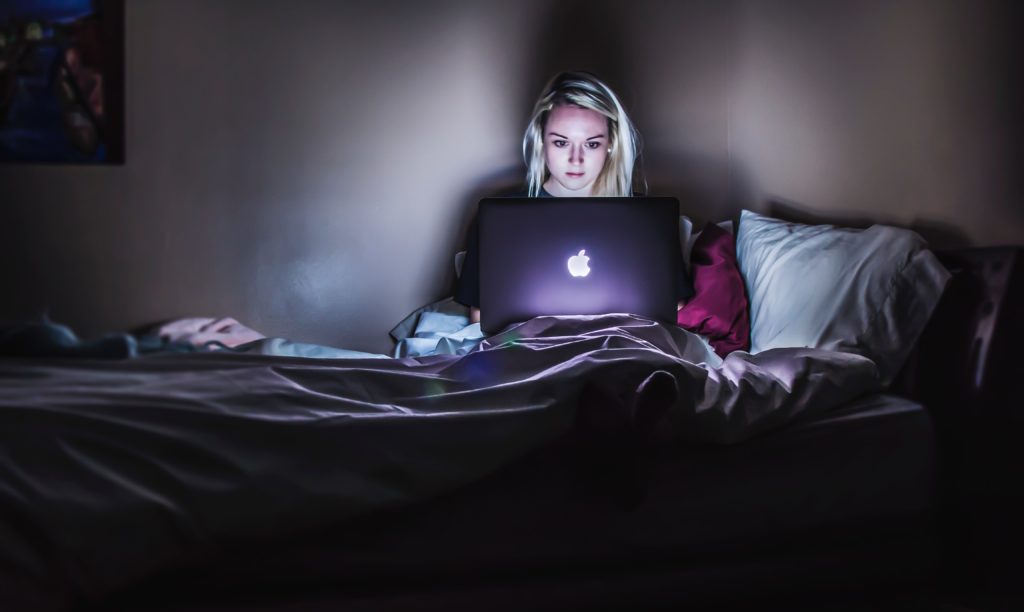
8) Dance (or Run or Yoga) Your Way to Better Sleep.
Regular physical activity promotes better sleep, helping you to doze off faster and allowing you to fall into a deeper slumber. Just be mindful of the timing—if you exercise too close to bedtime, it might re-energize you instead of naturally wearing you out. There is a simple solution though: just exercise earlier in the day. Aim to finish any vigorous exercise 3 to 4 hours before you head off to bed.
Side Note on Sleeping Medications:
If you’re having serious long-term trouble catching some z’s, it can be tempting to rely on sleep aids, both prescription and/or over-the-counter. Sleeping medications work fast, and they involve no effort on the part of the pill popper. Plus, they are usually effective for falling asleep on the first night.
I totally acknowledge that used properly, prescription sleep medications can provide benefits to severely sleep-deprived folks. Medications can help break patterns of poor sleep and give some much-needed relief to the body, so you can then work on the problems (medical or psychological) that are causing your insomnia.
BUT the long-term safety of sleeping pills is a bit of an unknown and more studies are needed—the lasting harmful effects may not become apparent for many years. Most experts recommend they should not be taken for more than a few days to a few weeks (maximum) because they can become habit-forming. Particularly sleeping medications known as benzodiazepines are known to cause addiction. And long term use can also lead to greater tolerance which feeds the cycle of higher and higher dosages.
And everyone reacts differently to medication. Some side effects of various sleep medications can include dizziness, memory problems, morning hangover, daytime drowsiness, driving a car around town or eating while asleep and not remembering it, sleepwalking, headaches, suicidal thoughts, nausea, severe allergic reactions, and constipation. Oh my!
Let’s face it, the best way to get better sleep is to (first) promote better sleep in the way you live your life and (second) get to the root of the problem! If you’re thinking of reaching for an over-the-counter sleep medication, check out herbal or homeopathic remedies that promote sleep naturally.
Last, But Not Least, It’s Time to Start Snoozin’!
There is nothing better than a good night’s sleep, and now you know all the extra bonuses that can come with a little planning and self-care. We’re talking about a better mood, memory, concentration, energy, skin, fewer colds, increased metabolism (to regulate your weight), and yes, even better sex! Sleep itself is restorative—it increases testosterone levels, which boosts sexual drive for both men and women. Sign me up!
Best of all, you can start reaping these rewards immediately and for free. We all have felt the difference between a shitty night’s sleep and a great night’s sleep. So dim those lights, hide that smartphone and let the benefits of better sleep do its thing for your health while you just relax. No counting sheep necessary.
Which way to get better sleep will you try out first this week? Let me know in the comments below for some added accountability.
LOVE + sweet dreams!

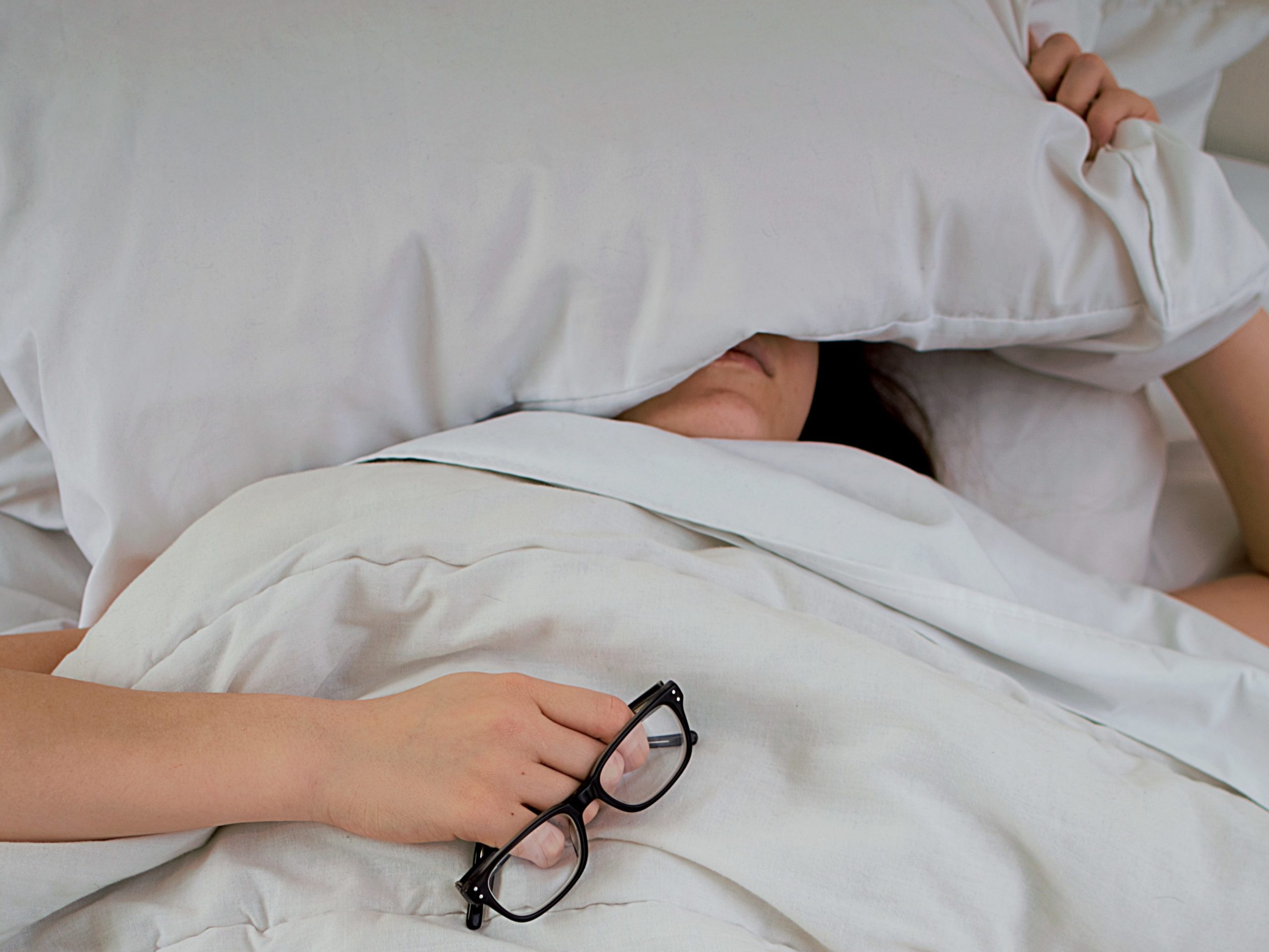
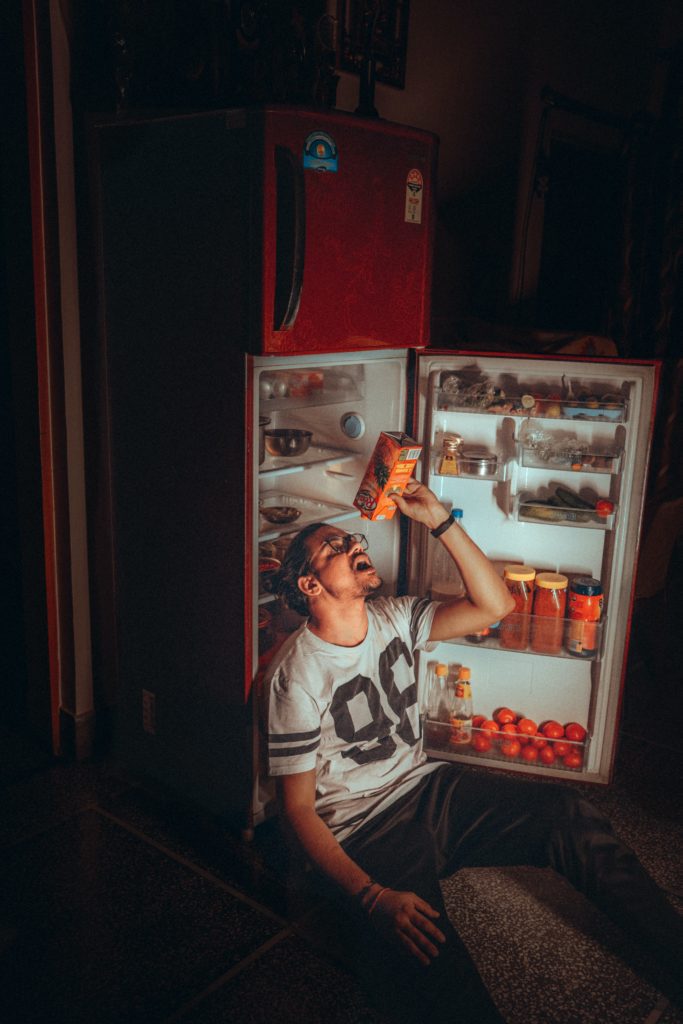
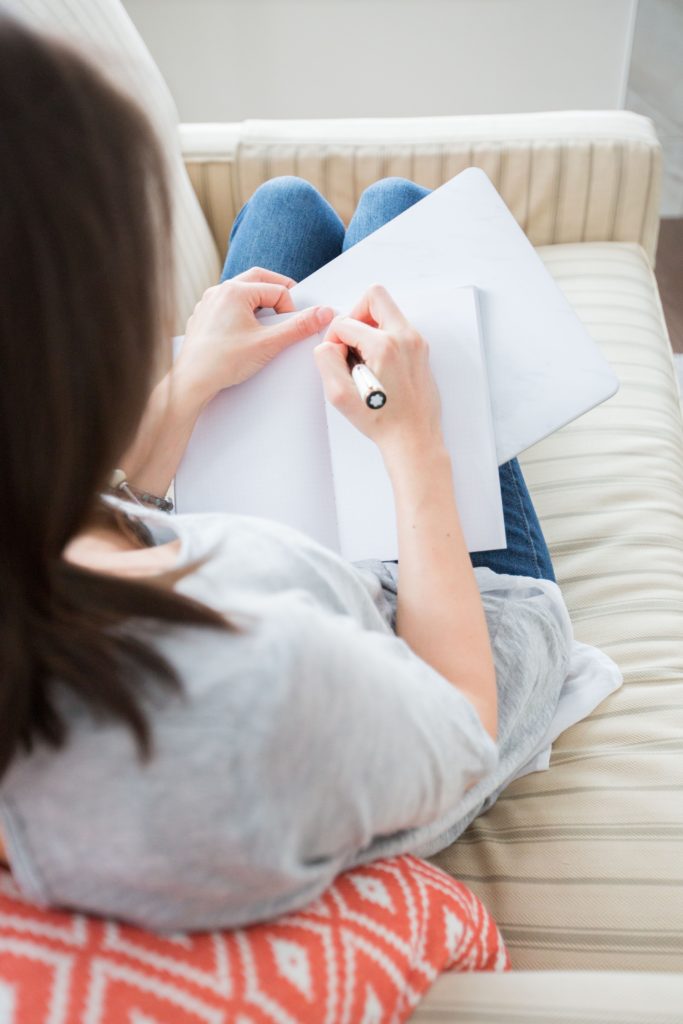
Imma be more conscious of drinking all the water I need by an hour/2 before bed! Thanks Moniqua 🙂
You’re so welcome! Hope these lil tidbits help!
[…] 1) Keep your clocks synced.Implement a gentle nighttime routine to signal your body that it’s time to wind down, so that you can maintain a consistent bedtime every night. This will help ensure you get enough sleep to keep your neurons healthy. For tips on a night time routine, click here. […]
[…] Cap your nap at 20 minutes. You don’t want to fall into a deep slumber and suddenly realize you’ve dozed through important meetings or work […]